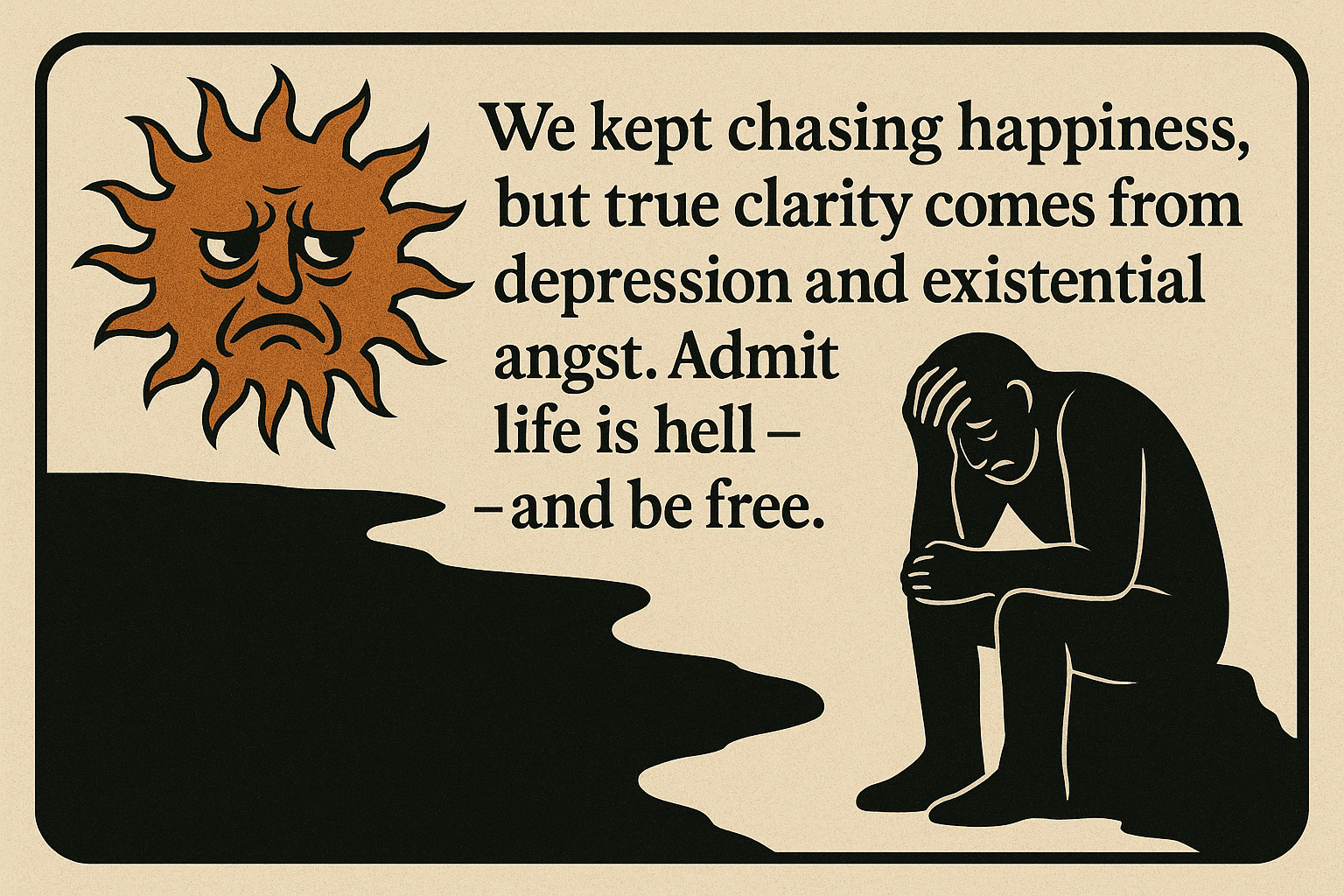We kept chasing happiness, but true clarity comes from depression and existential angst. Admit life is hell — and be free.
A state of inner turbulence, apprehension, and negativity about the future led to the complete collapse of a once-positive and optimistic outlook. I no longer recognized myself and often wondered what happened to the cheerful person I used to be.
The best-known therapy for purging negative thoughts is Cognitive Behavioural Therapy (CBT). Its premise is that depression is caused by a negative style of thinking. When we’re depressed, we tend to see ourselves as hopeless, doomed, worthless, rejected by others, and believe that things will never change. I attended CBT sessions, but to me, it felt like someone was telling me comforting stories — the kind you tell a child at bedtime to shield them from the brutal truth of the world. Sometimes, depressive thoughts are unbearable — but that doesn’t necessarily mean they’re distortions of reality.
What if positive thinking offers a biased view of the world? What if depression teaches us something meaningful?
Mainstream society embraces what’s “normal” and “positive” — as long as it doesn’t disrupt the flow. But positive illusions are still cognitive biases: unrealistic optimism, illusions of control, overestimation of abilities. Around 75–80% of people consider themselves above average — but how is that mathematically possible?
Heaven is no longer a transcendental realm, but a goal — the attempt to transform Earth into a paradise through constant happiness and positivity. Yet some philosophers argue that life is bone-deep suffering and endless mourning. It’s bad today — and it will be worse tomorrow.
Sigmund Freud didn’t believe much in psychoanalysis as a complete solution. He thought therapy could only transform “hysterical misery” into “common unhappiness.” The real goal, he felt, should be helping patients accept and reflect on the hell that is life — not escape to some imaginary beyond. Even he admitted: reality often becomes more transparent through the lens of depression.
In closing, I want to say — yes, life is horrible. But there are still good things in it. Next time, before you plunge into alcohol, or turn to friends, loved ones, therapists, or any other life-affirming practices, remember: almost all constructions of meaning — from work, sport, or even opening our hearts to Jesus — are inherently illusory.
In the end, we may never escape suffering or delusion — and we might not even need to. Life is hell, and perhaps no heaven awaits. But maybe that, in itself, is our path to freedom. After all, we have nothing to lose.
